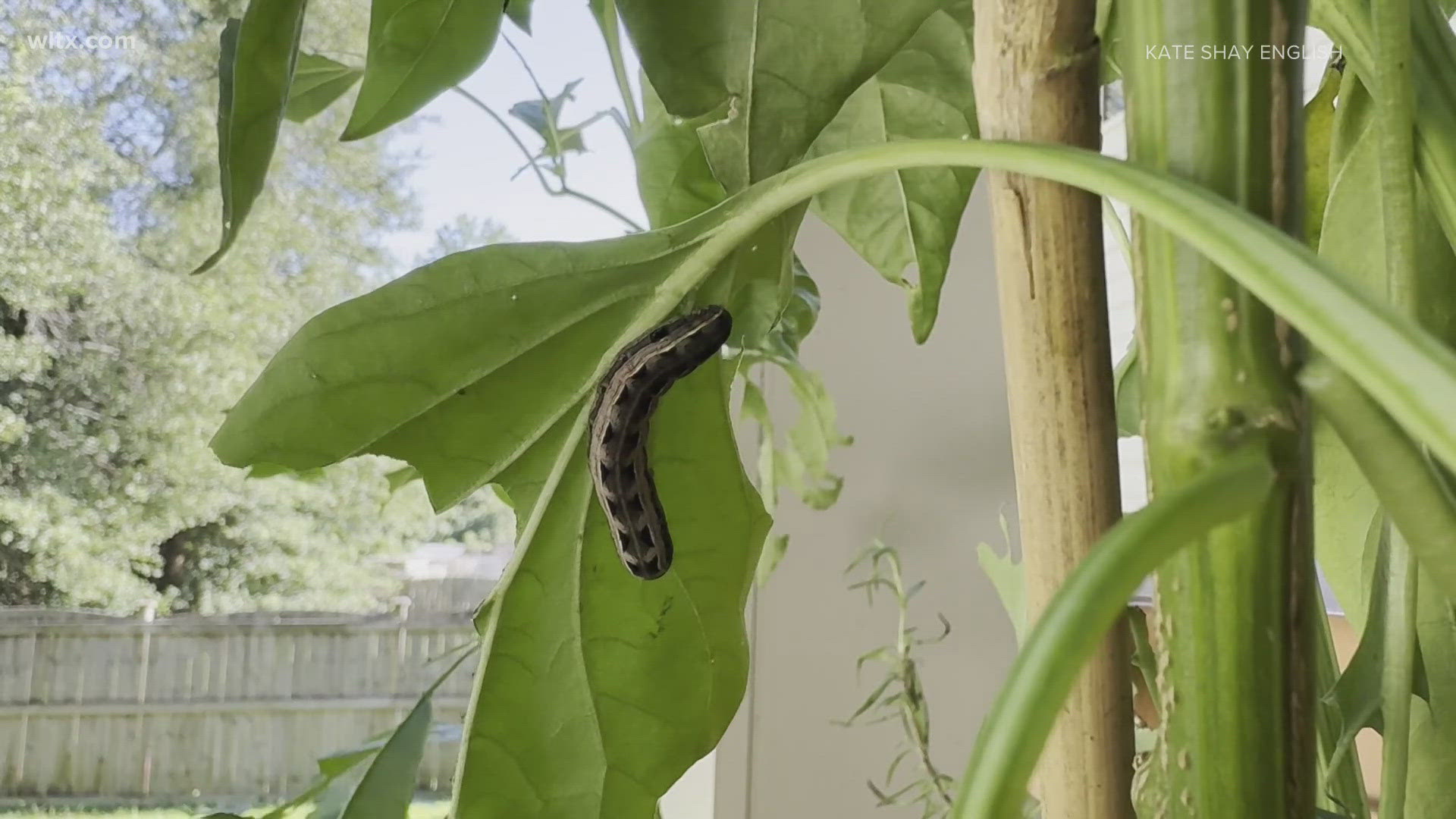COLUMBIA, S.C. — If you’re seeing brown or dry patches in your yard, it might not be from a lack of water. Many folks in the area are experiencing an invasion of armyworms in their yards, and experts say this is due to high moisture levels from rainfall in the state.
Jackie Jordan is the Master Gardener coordinator for Richland, Kershaw, and Fairfield counties with the Clemson Extension and said the worms can be a hazard to yards and farms.
“They can really decimate the grass, and you can lose a lot. I have seen a baseball field just completely decimated by armyworms,” said Jordan.
She said armyworms are invading lots of yards in the Midlands.
“They’re really voracious eaters of the different plants," she said. "They go after turfgrass. They can go after some ornamentals, corn, a lot of pasture grasses; they're looking for nitrogen in their diet. They're going after those new leaves, those new blades, that new growth.”
Jordan said a key way to spot them is to look for a distinct “y” shape on their heads.
“If you are seeing movement especially early, you are seeing movement especially early on in the morning, out in your lawn, you're getting a lot of crows, a lot of birds in your yard. They like to eat them. so that can be an indicator that you have them,” she said.
According to experts, there are different ways to get rid of them.
“There are insecticides that they can use to treat for them," Jordan said. "Depending on what the crop is, you may not have to do anything. You may have to give a little bit of a light fertilization to spur on some more growth. It's going to be crop dependent."
This impacts not only yards in the state but also farmlands.
“They're a very big nuisance. We've lost, oh, Lord, I bet we've already lost about 50 to 60 acres to them so far,” said Ethan Bedford, one of the owners of Hazelwood Farms Dairy, LLC.
He said these worms negatively impact farmers.
"They're eating our pastures down, and we're going to have to start feeding hay," he said. "But on the other side of things, they're eating the hay fields down to the point that we're not hardly getting any hay out of them. It's going to end up causing a pretty good hay shortage here in South Carolina for the ones that have it and the ones that are having to feed hay that cannot produce their own. It's going to put everybody in a bind, and I've got a feeling we're going to end up losing more farmers this year than we did last year."
Farmers said they depend on hay to feed their animals during the winter season, and without it, Bedford said South Carolina farmers might need to get hay from out of state, which can be costly.
“Support your local farms in buying their products because y'all's support helps us keep going, even through times like this, that it allows us to be able to go out and purchase our sprays or whatever we need to keep going,” Bedford said.
Local landscapers said insecticides can be found at local farm supply stores if you want to spray your yard.

